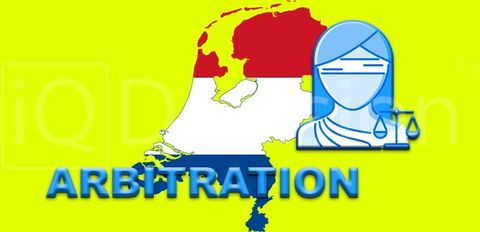Arbitration is a private method to settle disputes based on an agreement between the parties involved. Dispute resolution by arbitration in the Netherlands, like in any other European country, ends with a decision of the arbitrators. When the arbitrators make their final decision, this is called an award and it is legally binding. If you don't agree with it, you can't take your case to court to get the decision changed. It is final, so that no one can overturn it if someone simply does not agree.
Cancellation of an arbitral award
The decision must be signed by all arbitrators, and electronic signatures are also quite acceptable, which is no longer a novelty in the Netherlands. Rarely, but it happens that one of the arbitrators expresses his/her disagreement with the decision and refuses to sign it. In this case, this could be the basis for its further cancellation.
An arbitral award cancellation is only possible if the arbitration process is held in the Netherlands. An application to set aside an interim award can only be made in conjunction with an application to set aside a final or partial final award.
Enforcement issues
How does a party make sure the other party follows the award of the Dutch arbitration tribunal?
Many will voluntarily follow the arbitrator’s decision; however, the arbitrators do not have the authority to actually force a party to do what the award prescribes. Instead, if a party loses in the arbitration and does not do what the award says, the winning party may go to court asking to enforce the award.
Dispute Resolution in the Netherlands: Foreign Decisions
Arbitral awards in the Netherlands are executed in different ways, depending on whether the award is national or foreign.
Dutch courts can recognize and enforce a foreign arbitral award in accordance with the New York Convention, unless there are grounds for refusal. However, in certain circumstances, even if such a ground is found, the court nevertheless has authority for recognition and enforcement.
Final word
Experts from IQ Decision UK briefly talked about how a dispute can be resolved in the Netherlands, as well as some key aspects of the arbitration itself in this jurisdiction.
In most cases, arbitration is a less expensive, faster and more understandable way of resolving disputes than a case in a foreign court.
Therefore, if you work with foreign counterparties from the Netherlands and they insist on resolving disputes in their jurisdiction, we advise you to consider arbitration as a worthy alternative. We have extensive experience in international disputes, and we offer you assistance and are ready to represent you in all phases of conflict avoidance and conflict resolution.
If you encountered the need to start arbitration proceedings in the Netherlands, we will advise you on how to do it competently from the point of view of Dutch law, as well as represent your interests in an arbitration court with high quality. Reach out to use using the feedback form below.

















